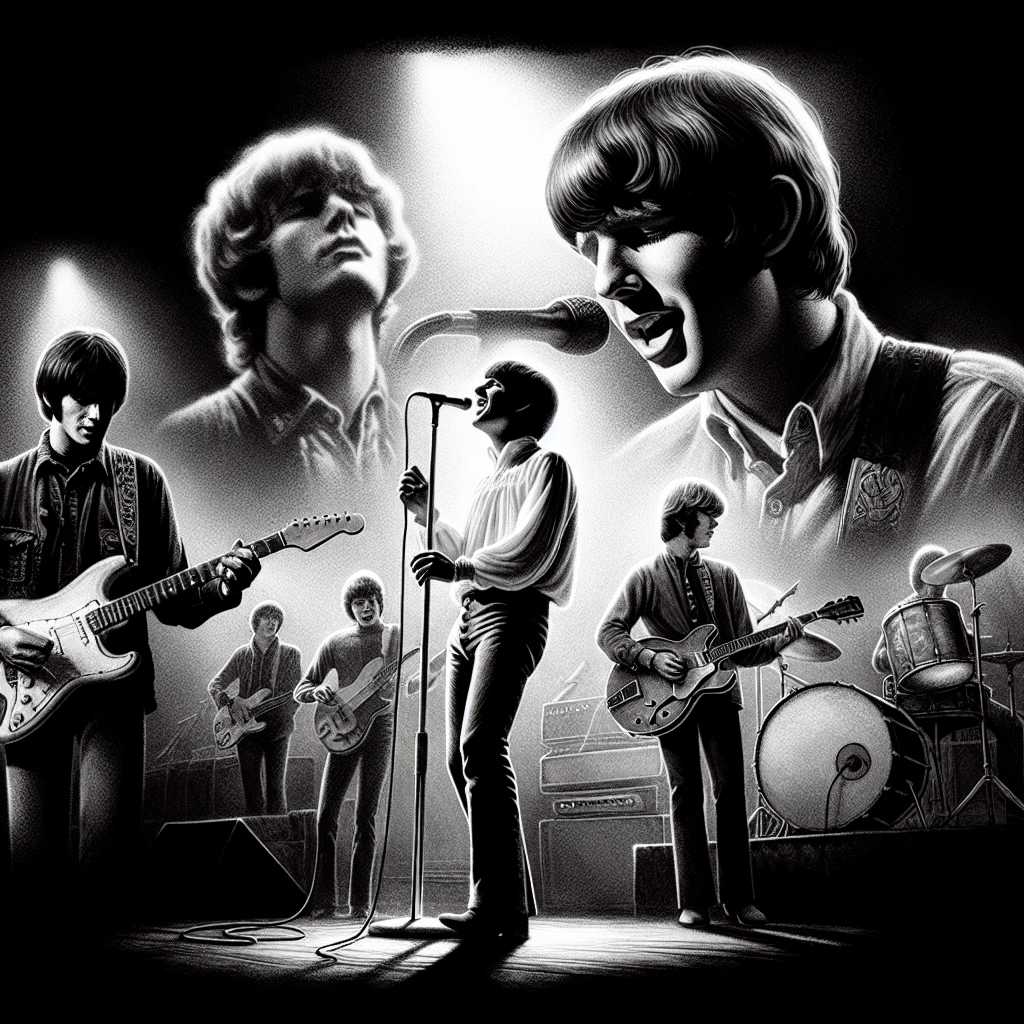The Rise and Impact of Oasis: A Look at the Seminal Britpop Band
Oasis, an English rock band that emerged from Manchester in 1991, quickly became one of the most influential and iconic bands of the 1990s. Their distinctive sound—characterized by Noel Gallagher’s anthemic songwriting and brother Liam Gallagher’s brash vocal style—catapulted them to international fame. With a mix of Beatles-inspired melodies and the attitude of the kind of British rock icons they admired, Oasis defined a generation with their music, becoming synonymous with the Britpop movement.
Formation and Early Years
From Rain to Oasis The band that would become Oasis originally formed under the name Rain, with Paul “Bonehead” Arthurs on guitar, Paul “Guigsy” McGuigan on bass, Tony McCarroll on drums, and Chris Hutton as vocalist. After Hutton was replaced by Liam Gallagher and the band’s name changed to Oasis, the final key member, chief songwriter and lead guitarist Noel Gallagher, eventually joined after being impressed by his brother’s band. The Creation of A Distinctive Sound In the early years, Oasis emerged in Manchester during a revitalization of the city’s music scene. Playing at venues like The Boardwalk, they cultivated a local following with their robust energy before hitting the studio. Breakthrough with ‘Definitely Maybe’ and ‘Morning Glory’
Debut Album Success Their debut album, ‘Definitely Maybe’ (1994), holds the record as the fastest-selling debut album in UK history. It brought forth hits like “Live Forever” and “Supersonic,” projecting not only their talent but also their aspirational message resonating with fans tired of grunge’s downbeat nature. Phenomenal Follow-Up Only a year later came (What’s the Story) Morning Glory?, featuring chart-topping hits such as “Wonderwall,” “Don’t Look Back in Anger,” and “Champagne Supernova.” This album solidified Oasis’ status atop the British rock scene and expanded their influence to the United States amidst the waning of ‘Grunge’ popularity. Beatles Comparisons and Britpop Rivalries
Next Beatles? With their success, Oasis drew inevitable comparisons to The Beatles due to their melodic style, and occasionally, for their feuds within the band, particularly between frontman Liam Gallagher and guitarist/songwriter Noel Gallagher. Battle with Blur At the peak of Britpop, which saw bands taking influence from British pop music of the 1960s and 1970s to create a new national pop culture scene against American grunge music, Oasis found rivalry. None more famous than the chart battle with Blur in August 1995 when Blur’s “Country House” competed against Oasis’s “Roll With It” for top spot in the charts—a defining event often highlighted as “The Battle of Britpop”. Struggles, Break-ups, and Legacies
Highs and Lows Subsequent albums like ‘Be Here Now’ faced mixed reviews despite initial commercial success. The turn of the century witnessed a decline in the band’s critical reception along with personal struggles and lineup changes—founding members Paul ‘Bonehead’ Arthurs and Paul ‘Guigsy’ McGuigan both departed from the band in 1999. Internal Tensions Lead to Split In-fighting reached a boiling point resulting in Noel’s departure. Without their primary songwriter, Oasis continued on tour but finally dispersed after a backstage altercation between Noel and Liam in August 2009 ended with a canceled festival performance. The Legacy Continues Despite this end, the influence of Oasis endures. Their contribution to Britpop is evident not just by their record sales but through oasis aspiring musicians who admired their bravado and unwavering belief in rock ‘n’ roll. Notes
Definitely Maybe sales broke UK records upon its release
Representative tracks like
Wonderwall have amassed over 700 million streams on Spotify alone
Noel and Liam Gallagher each ventured into new music projects post-Oasis:
High Flying Birds and Beady Eye , respectively
Oasis released seven studio albums between 1994-2008 Image description : A black and white photograph of Oasis’s classic line-up with Noel Gallagher playing guitar at the front while Liam Gallagher sings into a microphone stand center stage at an emotionally charged concert.
